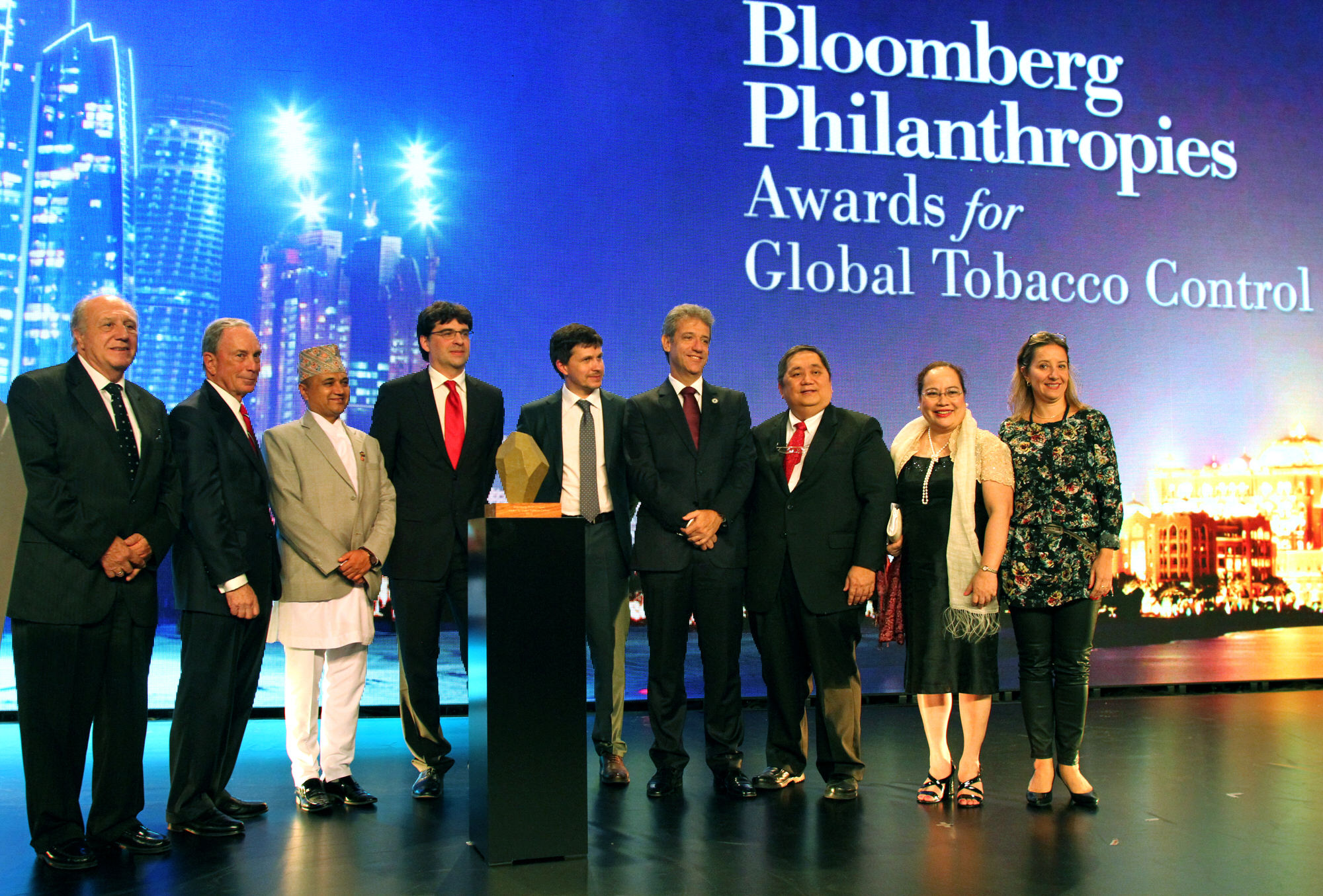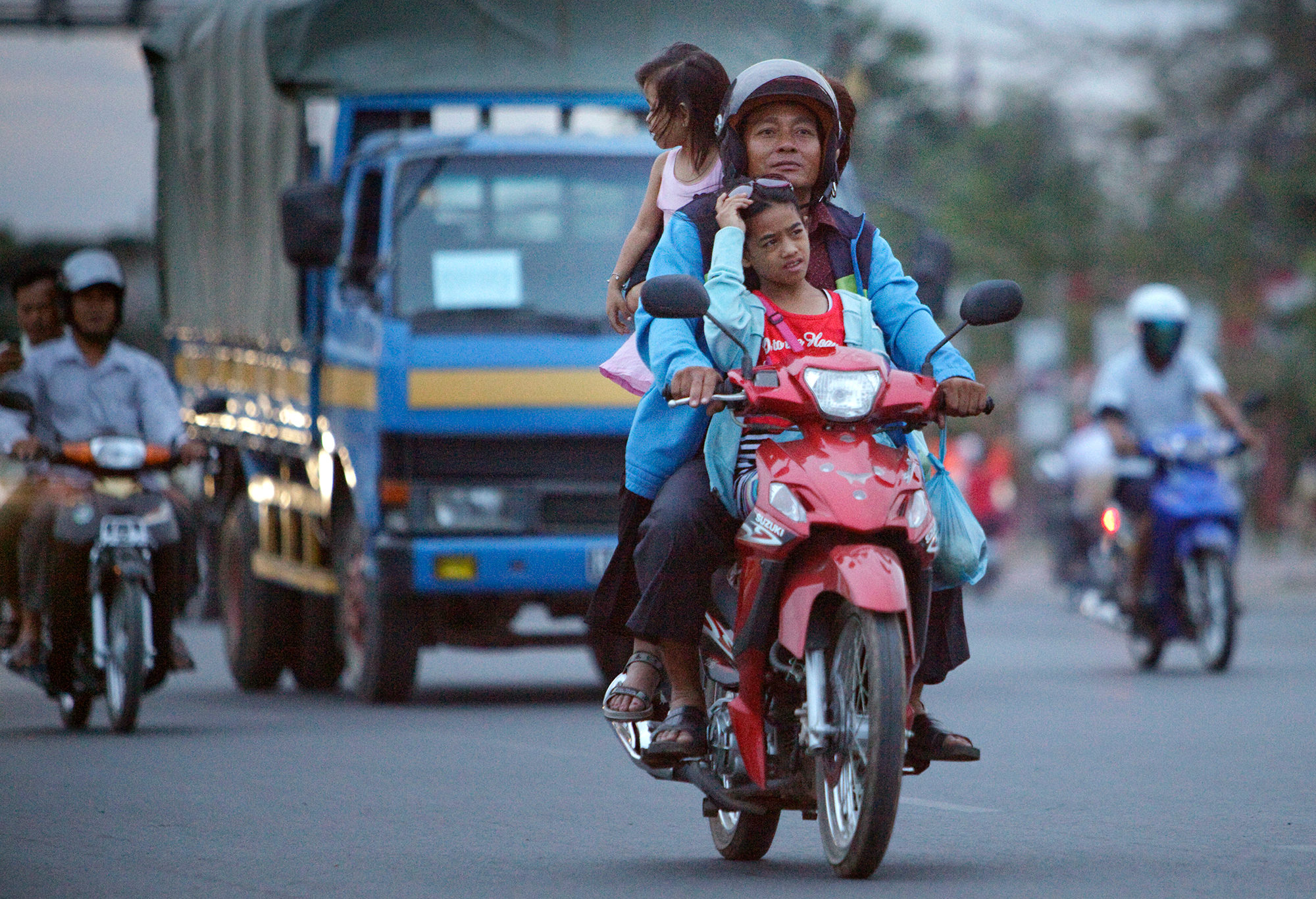Bloomberg Philanthropies’ Public Health program aims to combat these health hazards by spreading strategies at national and local levels that are proven to protect more people and save more lives. Our programs use effective strategies to improve the quality of life for tens of millions of people worldwide. In each of our public health initiatives, we form partnerships with existing organizations and rigorously analyze data to achieve results.
The innovative Data for Health partnership between the Australian Government and Bloomberg Philanthropies is designed to provide partner countries, aid organizations, and public health leaders with better data to inform health policy. Developing partner countries will benefit from the world-renowned expertise in data collection and analysis which Bloomberg will bring to this program.
The Honorable Julie Bishop MP
Australian Minister for Foreign Affairs
A new joint legal defense fund with the Gates Foundation pushes back on the industry’s predatory international legal tactics
Tobacco will claim 1 billion lives in this century unless urgent action is taken—the Trade Litigation Fund is the newest part of our comprehensive strategy to reduce tobacco use globally. In 2015, Mike Bloomberg and Bill Gates launched the Anti-Tobacco Trade Litigation Fund to help countries combat the tobacco industry’s tactic of threatening legal action or using international trade agreements to prevent passage of strong domestic tobacco control laws.
In addition to the Fund, Bloomberg Philanthropies is supporting the government of Uruguay as it fights a lawsuit brought against it by Philip Morris International to overturn the country’s effective graphic pack warnings.
In 2015, Mike Bloomberg recognized the success of groups that are accomplishing the impossible at the Bloomberg Philanthropies Global Tobacco Control Awards during the 16th World Conference on Tobacco or Health in Abu Dhabi, the world’s largest gathering of tobacco control advocates, policy makers, and researchers. Six organizations from low- and middle-income countries were honored for their efforts in implementing effective tobacco control policies.
Watch videos highlighting the work of each winning organization:
Our Impact
23 million lives
saved with Bloomberg Philanthropies' support for anti-tobacco efforts
$600 million
committed by Bloomberg Philanthropies through 2016 to tobacco control in low- and middle-income countries
164 media campaigns
in 31 countries have educated people on the dangers of tobacco use
550,000+ news stories
about tobacco control published in countries with half the world's smokers (China, India, Indonesia, Russia and Bangladesh)
5,000 lawyers and advocates
trained by legal experts to fight for tobacco control laws and enforcement
Reinvesting an additional $125 million to work with national governments and cities to curb one of the world’s leading causes of death
Despite road crashes killing more than 1.25 million people and injuring up to 50 million a year worldwide, road safety is not seen as a public health crisis. However, the World Health Organization predicts that, at the current rate, road crashes will become the seventh leading cause of death globally by 2030.
We expanded the scope of the Bloomberg Philanthropies Initiative for Global Road Safety in 2015 to implement proven interventions in ten cities, as well as strengthen road safety laws and regulations in countries with legislative opportunities. The strategies feature:
- Targeting cities because mayors can move quickly to adopt and enforce proven road safety interventions, such as reducing speed limits and running media campaigns.
- Strengthening national road safety legislation in countries and cities.
- Advocating for strengthened vehicle standards to protect customers, including regulations requiring airbags and seat-belts.
As a result of local government and nonprofit efforts, we are seeing real benefits—including dramatically decreased fatalities and injuries.
2015 Road Safety Work in:
COUNTRIES
Cambodia, China, India, Mexico, Philippines, Russia, Tanzania, Thailand, Vietnam
CITIES
Accra, Ghana; Addis Ababa, Ethiopia; Bandung, Indonesia; Bangkok, Thailand; Bogotá, Colombia; Fortaleza, Brazil; Ho Chi Minh City, Vietnam; Mumbai, India; São Paulo, Brazil; Shanghai, China
Results since 2010
125,000 lives
saved by road safety interventions funded by Bloomberg Philanthropies
34% → 77%
The increase in helmet use by motorcyclists in Ha Nam, Vietnam, from 2011 through 2014
68% → 3%
The decrease in speeding in Thika, Kenya, from 2010 to 2014
4% → 37%
The increase in seat-belt wearing in Afyon, Turkey, from 2010 through 2014
Harnessing public health data to inform policy and investments in health
In 2015, Bloomberg Philanthropies launched Data for Health, a $100 million initiative co-funded with the Australian government. The program assists 20 low- and middle-income country governments across Latin America, Asia, and Africa to strengthen their public health data and improve the way they use data to inform policy making and investments in health.
With two-thirds of deaths in the world currently unrecorded, many health policy decisions are made without adequate information. Given the often-limited resources in these countries to improve public health, gaps in the data merely complicate already challenging decisions about where to allocate government spending.
By working with national and local governments to shape new policies and provide subsequent accountability, the Data for Health initiative will provide more complete birth and death data that will drive health priorities forward and save lives. Our work is focusing on helping countries determine the scale of this problem and ways to improve health—thus ultimately reducing deaths.
Supporting consumer awareness and policies that promote healthy food environments
Since 2012, Bloomberg Philanthropies has supported efforts to curb rising obesity rates in Mexico.
In 2013, the Mexican government took a major step forward when it passed a 10% tax on sugary beverages.
Bloomberg Philanthropies supported a first-of-its-kind evaluation of the tax, published earlier this year in the medical journal BMJ. The study shows that the tax works to reduce consumption of sugary drinks, providing needed evidence for similar measures currently being debated in the United States and around the world.
The work Bloomberg Philanthropies has supported in Mexico is truly groundbreaking and has paved a way for the world to follow. Raising sugar-sweetened beverage tax can be done and, as shown in Mexico, it does have impact. A sugary drinks tax is just one part of a really strong multi-pronged child obesity strategy needed by countries all over the world to tackle this epidemic. I am delighted that the UK and countries around the world are starting to follow Mexico’s lead.
Jamie Oliver
Chef and Campaigner



